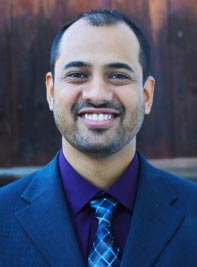Date
Cost
Free and open to the public
Location
Physical Science Building, Room 161
Description
Traditional vaccines made of dead pathogens have saved countless lives. However, traditional vaccine approaches have been unable to generate prophylactics against autoimmune disorders, AIDS and malaria.Therefore, there is a great need to artificially engineer the immune system to provide protective immunity from such deadly diseases.
Biomaterials-based vaccines can be used to engineer the immune system by modulating the function of immune cells, thereby developing prophylactics against a wide spectrum of diseases, while providing long shelf life and stability. In order to generate an effective biomaterials-based vaccine three important steps need to be followed:
- production and optimization of vaccines in vitro,
- delivery of vaccines in vivo, and
- assessment of the immune responses generated from these vaccines.
We have developed techniques that address each of these steps. First, we developed technologies to generate and optimize vaccine formulations in a high-throughput manner. These technologies are geared toward modulating the function of dendritic cells, which are known to initiate protective immunity. Furthermore, we have developed new biomaterial-based vaccines which can be delivered in vivo via an oral route and generate robust immunity.
Upon delivery of vaccines in vivo, it is very important to assess the extent of protective immunity in order to further optimize the vaccine formulation. In order to assess the extent of protective immunity provided by the vaccines upon in vivo delivery, we developed ultra-sensitive protein detection techniques for quantifying the immune responses in femtomolar range. Through these techniques we were able to develop a novel particle-based vaccine system, test the efficacy of the vaccine both in vitro and in vivo, and quantify the immune response. We envision that these technologies will greatly enhance all aspects of vaccine development and will have a great impact on the generation of new vaccines.
Presenter

Abhinav P. Acharya, Ph.D.
Wallace H. Coulter Department of Biomedical Engineering
Georgia Institute of Technology
More information
Light refreshments will be served
Contact
Mari Pina NanoScience Technology Center 407-882-1515 Mari.Pina@ucf.edu